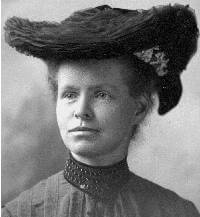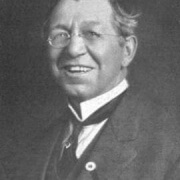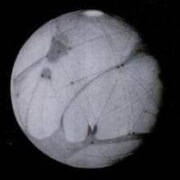July 7 is Nettie Stevens Day

Nettie Stevens
Nettie Stevens Day celebrates the scientist who discovered that sex is determined by XX and XY chromosomes. On July 7, 2016, the 155th anniversary of her birth, the only reason many people learned her name was by clicking on that day’s Google doodle.
She studied mealworms and found that a male’s sperm carried both X and Y chromosomes, while a female’s eggs contained only X chromosomes. She concluded that sex determination must come from fertilization of the egg by the sperm. In 1905, she submitted for publication a paper reporting her results.
Meanwhile, Columbia University scientist Edmund Beecher Wilson had reached the same conclusion. He was asked to review Stevens’ paper prior to its publication; his own paper had reportedly already gone to press, negating any possibility of dishonesty.
Historian Stephen Brush disputes the timeline in The History of Science Society, “It is generally stated that E. B. Wilson obtained the same results as Stevens, at the same time,” he writes. But “Wilson probably did not arrive at his conclusion on sex determination until after he had seen Stevens’ results.”
In fact, Wilson wrongly asserted that environmental factors could influence sex. Stevens insisted it was all due to chromosomes. At the time, there was no way to prove either theory. But it’s been known for decades that Stevens got it right. It renders the question of who published first irrelevant.
In spite of that, Wilson and Stevens were credited with making the fully correct discovery independently. Wilson received the lion’s share of accolades while Stevens was often mistakenly referred to as a “lab technician.” Brush states, “Because of Wilson’s more substantial contributions in other areas, he tends to be given most of the credit for this discovery.”
The fact that Nettie Stevens had two X chromosomes certainly contributed to the lack of recognition. Her accomplishments put the lie to Brush’s assertion. She published 40 papers and was about to attain full research status at Bryn Mawr when she died of breast cancer on May 4, 1912, at the age of 50.
She—and Wilson, too—have been all but forgotten since then. In 1933, fellow scientist Thomas H. Morgan received the Nobel Prize for his pioneering work in chromosomal research even though he didn’t espouse the theory until years after Stevens and Wilson published their papers.
Stevens once remarked to her students that their questions were always welcome “so long as I keep my enthusiasm for biology; and that, I hope, will be as long as I live.”
Let’s remember Nettie Stevens today. And tomorrow and the next day….
![]()









Leave a Reply
Want to join the discussion?Feel free to contribute!